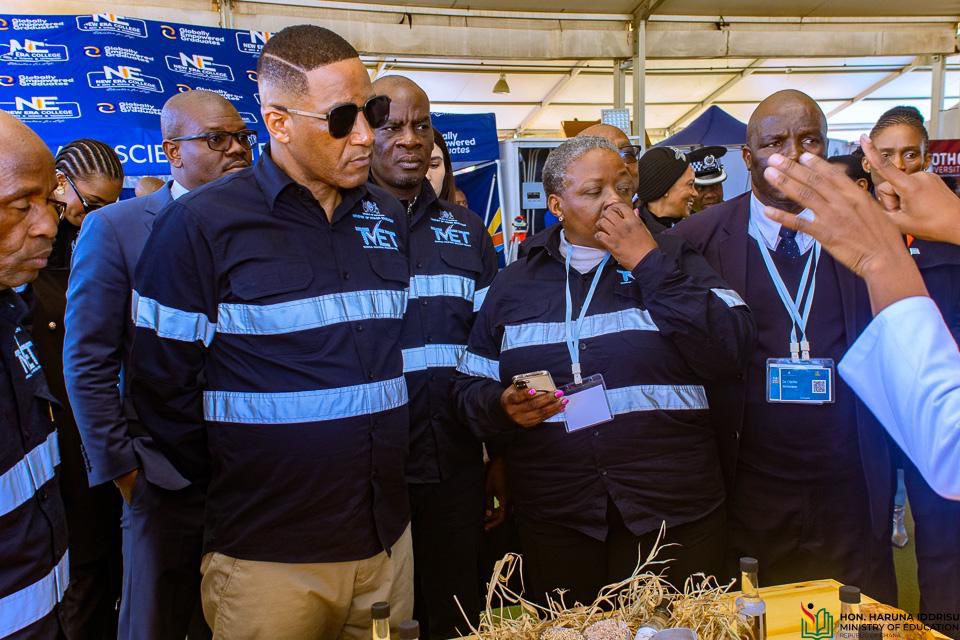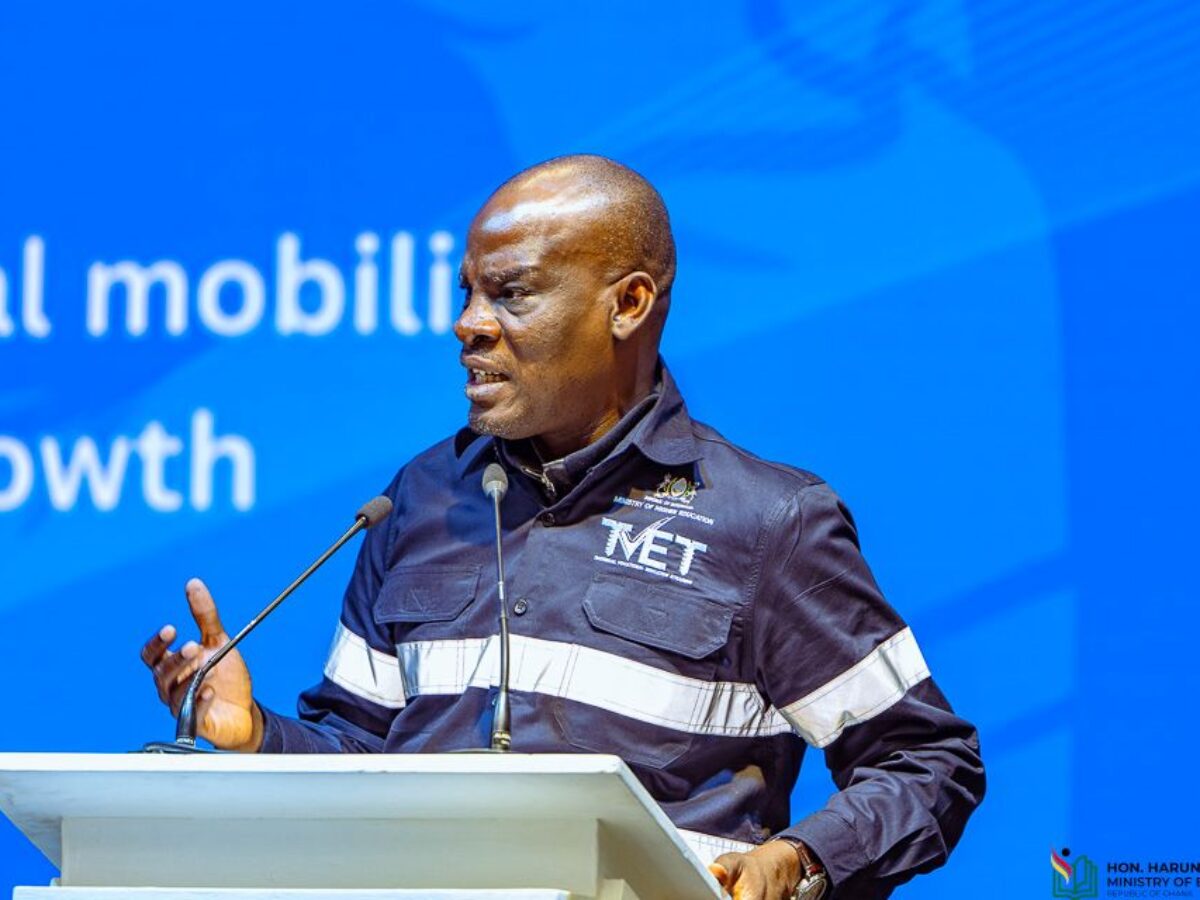By Stanley Kwabla Arku
Minister for Education, Hon. Haruna Iddrisu, has spotlighted the Ghana’s sweeping transformation of its Technical and Vocational Education and Training (TVET) sector, positioning it as a central pillar of national development and job creation.
Speaking at the 2025 TVET Pitso forum held at Ba Isago University in Gaborone, Botswana, the Minister outlined Ghana’s robust investment in TVET, aimed at equipping the country’s youth with practical skills that meet the demands of the 21st-century job market.
The event, co-hosted by Botswana’s Human Resource Development Council (HRDC), was officially opened by President Duma Gideon Boko and brought together education ministers, policymakers, and industry stakeholders from across the continent.

Addressing the forum on the theme of human capital development, Minister Iddrisu acknowledged the common challenges that have historically hindered the growth of TVET in Africa including underfunding, misalignment with industry, and deep-rooted public misconceptions.
“TVET is no longer a path reserved for the less academically inclined or a punishment for non-conformist youth,” he declared. “Today, TVET is the backbone of national development. It is our government’s top priority for industrialization and job creation.”
He shared key milestones in Ghana’s TVET journey, including the establishment of three new technical universities focusing on Digital Engineering, Agricultural Engineering, and Applied Healthcare Sciences. These institutions, he noted, offer a range of programs from short professional courses to full Bachelor of Technology degrees.
The Minister also highlighted reforms under the Education Regulatory Bodies Act 2020, which led to the creation of the Commission for TVET (CTVET) the central agency responsible for regulation, quality assurance, and policy direction in the sector. Complementing this was the formation of Sector Skills Bodies (SSBs) tasked with bridging the gap between academia and industry through collaborative curriculum design.

Another major policy shift, according to Minister Iddrisu, came with the passage of the Pre-Tertiary Education Act 2020. This law established the Ghana TVET Service, which now oversees all public pre-tertiary TVET institutions and ensures that training is industry-led, demand-driven, and competency-based.
“These are not cosmetic reforms,” he said. “They are grounded in a deliberate vision to combat youth unemployment, drive industrial growth, and shift the narrative around technical education.”
Thanks to these reforms, Ghana has recorded a dramatic surge in TVET enrollment from just over 42,000 students in 2018 to more than 235,000 in 2024.
Minister Iddrisu concluded by calling for stronger collaboration among African nations, urging stakeholders to support Botswana’s HRDC initiative through funding, technical cooperation, and policy exchange. He also emphasized the need for inclusive approaches that encourage the participation of young women in traditionally male-dominated TVET fields.
“Our continent’s future depends on the skills we build today. Let us invest boldly, act collectively, and transform perception through results,” he said.
The 2025 TVET Pitso forum continues this week with panel discussions, exhibitions, and technical sessions focused on skills development, digital transformation, and cross-border partnerships in TVET.


